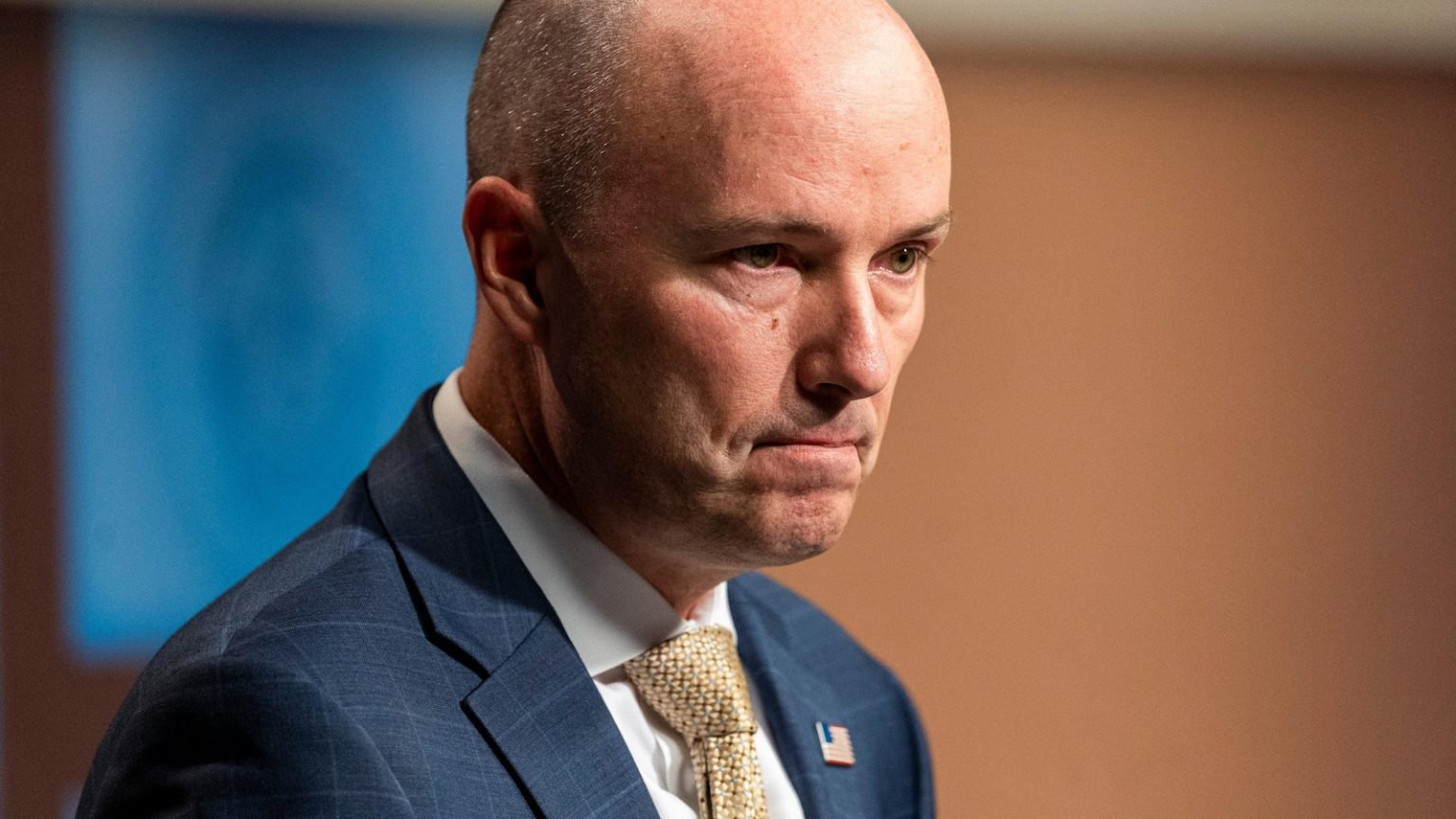Utah Governor Signs Controversial Collective Bargaining Ban Despite Strong Opposition
Utah’s Republican Governor Spencer Cox has signed a highly controversial bill that effectively bans collective bargaining for public sector unions, including teachers, firefighters, police officers, and transit workers. The new law, which goes into effect on July 1, prohibits unions from negotiating wages and working conditions on behalf of their members. This move has been met with widespread criticism from union members and labor experts, who argue that it undermines workers’ rights and weakens their ability to advocate for better working conditions. Despite thousands of union members rallying outside his office to urge him to veto the bill, Cox decided to move forward, stating that he was disappointed a compromise wasn’t reached but ultimately supported the legislation.
The bill was narrowly approved by Utah’s Republican-controlled Legislature after its sponsors dropped a proposed compromise that would have removed the outright ban on collective bargaining. The measure did not pass with veto-proof margins, meaning Cox could have rejected it without fear of an override. However, Cox chose to sign the bill, aligning himself with Republican lawmakers who argued that the ban was necessary to allow employers to communicate directly with employees rather than through union representatives. Labor experts, including John Logan from San Francisco State University, have described Utah’s new law as one of the most restrictive in the country, placing it alongside states like North Carolina and South Carolina in terms of limiting public sector union rights.
Public Sector Unions Decry the Ban as an Attack on Workers’ Rights
Public sector unions, particularly the Utah Education Association (UEA), have been vocal in their opposition to the new law. The UEA, which represents the state’s largest group of public education employees, criticized Cox for ignoring the voices of thousands of workers who urged him to veto the bill. The union has announced that it is exploring a possible ballot referendum to overturn the law, though such an effort would be costly and time-consuming. In a statement, the UEA called the ban a “blatant attack on public employees and our right to advocate for the success of our profession and students.” Many educators view the law as an attempt by Republicans to reduce the political influence of teachers’ unions and pave the way for their own education agenda.
Educators, who are among the most frequent users of collective bargaining in Utah, argue that the ban will disproportionately affect their ability to negotiate for better wages, classroom resources, and working conditions. By stripping unions of their bargaining power, the law leaves individual employees vulnerable and without a collective voice in negotiations with employers. This has raised concerns about the long-term impact on public education and the attrition of teachers in a state already grappling with staffing challenges.
The Law’s Impact on Public Employees and Labor Rights
The collective bargaining ban represents a significant shift in Utah’s labor landscape, effectively stripping public sector unions of their ability to advocate for their members. Beginning July 1, unions will no longer be able to negotiate wages, benefits, or working conditions on behalf of their members. This change is expected to weaken the bargaining power of public employees, particularly in industries like education, law enforcement, and public transit, where unions have historically played a crucial role in securing better pay and safer working conditions.
Labor advocates argue that the ban is part of a broader effort by Republican lawmakers to erode union influence and reduce workers’ rights. By prohibiting collective bargaining, the law limits the ability of public employees to organize and advocate for themselves, leaving them at the mercy of employers who may prioritize budget constraints over employee well-being. This has raised concerns about the potential for worsening working conditions, particularly in high-stress professions like teaching, policing, and firefighting.
National Context: Utah Joins States with Restrictive Labor Laws
Utah’s new law places it in the company of states like North Carolina and South Carolina, which have some of the most restrictive labor laws in the country. According to labor expert John Logan, Utah’s ban on collective bargaining is one of the most stringent in the nation, further cementing its reputation as a state hostile to union activity. The move aligns with a broader national trend of Republican-led efforts to limit union power, often under the guise of promoting flexibility or reducing bureaucracy.
The passage of the law comes at a time when labor rights are under threat at both the state and federal levels. President Donald Trump, for instance, has been working to weaken the U.S. Education Department, slashing its budget and pressuring employees to leave. Similarly, Utah’s decision to ban collective bargaining reflects a growing partisan divide over the role of unions in society. While supporters of the ban argue that it promotes direct communication between employers and employees, critics see it as an attack on workers’ ability to organize and advocate for themselves.
A Broader Assault on Rights? Transgender Housing Ban Also Signed
In addition to the collective bargaining ban, Governor Cox signed another controversial bill on Friday, prohibiting transgender college students from living in dorms that align with their gender identity. The law requires students at Utah’s public colleges and universities to use gendered spaces, such as dorms, locker rooms, and bathrooms, that correspond to the sex assigned to them at birth. This marks the first explicit transgender restriction aimed at university housing, though some states have broader bathroom laws that could be interpreted to apply to dormitories.
The transgender housing ban has drawn criticism from LGBTQ+ advocates, who argue that it discriminates against transgender students and violates their right to live authentically. By forcing students to use facilities that do not align with their gender identity, the law creates a hostile and exclusionary environment for transgender individuals. The move is part of a wave of anti-transgender legislation being pushed by Republican lawmakers across the country, often under the guise of protecting “traditional values” or “public safety.”
The Fight Ahead: Unions and Advocates Vow to Resist
Despite the setbacks, labor unions and LGBTQ+ advocates in Utah have vowed to fight back against the new laws. The UEA has already begun exploring a ballot referendum to overturn the collective bargaining ban, though the process will be challenging and costly. Meanwhile, LGBTQ+ rights groups are preparing to challenge the transgender housing ban in court, arguing that it violates constitutional protections against discrimination.
The passage of these laws has galvanized opposition from a wide range of groups, including union members, educators, LGBTQ+ advocates, and civil rights organizations. Many see the bans as part of a broader assault on marginalized communities and workers’ rights. As Utah becomes a battleground for these issues, the state’s residents are likely to see increased activism, organizing, and political engagement in the months and years ahead.















